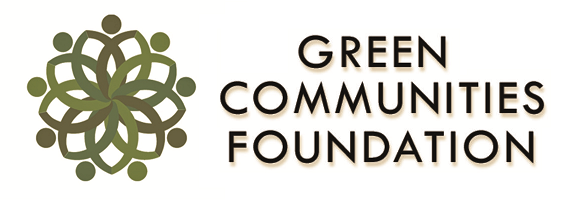Creating a model ward –
In Mumbai, the Municipal ward is the most basic unit for creating solutions for civic issues like Waste Management. A ward is a miniature version of the city consisting of residential communities, high-rises, corporate offices, markets, shops, slums, restaurants, open spaces etc. Planning of Waste Management also happens at the ward level. Any decentralized solution for the city first needs to be tested at a ward level and then replicated. GCF has identified one such ward in the suburbs where it focuses most of its energies to create a model for Waste Management.
Waste Management at Residential Communities –
The most important step towards Waste Management is segregation at source. We stress on three-way segregation to reduce at least 85% of the society’s landfill burden.
- Wet waste – treated at source through composting
- Dry waste – sorted, aggregated, recycled
- Hazardous waste – Coprocessing and a small portion to landfill
Our approach for implementing Waste Management programs at residential societies is as follows:
Society outreach – reach out of the managing committees (Chairperson/ Secretary) of identified societies with the help of BMC, corporators and other local bodies
Onboarding – Sign up societies and seek their commitment towards implementation
Communication to residents – A letter detailing out the project and the desired process to be adopted is sent to all residents by the Managing Committee. The same letter seeks volunteers who become part of the society’s internal task force
Training the task force – The task force is trained for resident outreach and on-ground monitoring of the project
Preliminary waste audit – This is taken up at the beginning of the project to identify current state of the waste management process in the society and key gaps. Their current level of waste generation is recorded using a handheld weighing scale.
Housekeeping training – they are trained to collect segregated waste separately and for further segregation of dry waste if needed
Door to door segregation kit distribution and education – Once the backend operations are in place, all households are visited and provided with a segregation kit consisting of a reusable PP bag for dry waste, a Green bin for wet waste and a laminated segregation chart. Their existing dustbin is used as a Reject waste bin. Each household is explained the process for waste segregation they need to follow, using a mix of charts and videos
Monitoring of the process – Post one on one interaction with all residents, the task force takes over the monitoring of the house level segregation. The GCF field team focuses on monitoring at the society manager and housekeeping level
Retraining – wherever the households are not complying with the segregation process, retraining of the respective residents and housemaids is done using videos and charts
Collection, storage and disposal of dry waste – post collection, the housekeeping stores the dry waste in large gunny sacks provided for the same. Periodically the BMC appointed dry waste vendor weighs, records and picks up this waste for further sorting and recycling
Wet waste treatment – Once the society reaches a certain level of segregation (say 70%), we start implementation of wet waste processing on site. This involves estimation of space and infrastructure needed, fixed and operating costs of the process, staff training, handholding and monitoring of the process till the society can manage on its own.
Post audit – Post implementation of the program, a waste audit is conducted again to evaluate the impact created.
Green Schools Program –
What better place than a school to introduce the concept of waste and its management? GCF works with municipal schools to convert them into Green Schools. We first start with explaining the students the concept of segregation of waste and its relevance. Each classroom is provided a bag to store their dry waste which is then aggregated at the school level and sent for recycling. We have also set up small composting bins in each classroom where children are actively involved in the composting process. The compost thus generated can be used to grow food in the school premises thus reinforcing the concept of circularity.
Dive Deep into Sustainability: GCF Projects for College Students
Green Communities Foundation (GCF) empowers college students to become active participants in creating a sustainable future through these unique projects:
- Waste Audit:
- Conduct a comprehensive analysis of waste generated on campus.
- Identify the types and quantities of waste produced.
- Utilize data to develop targeted waste reduction strategies.
- Gain a deeper understanding of the environmental impact of waste generation.
- Compost Making:
- Learn the entire process of composting organic waste on campus.
- Acquire practical skills in resource recovery and waste reduction.
- Create nutrient-rich soil for campus gardens or landscaping.
- Field Visit to Mumbai’s Waste Management System:
- Gain first hand exposure to Mumbai’s waste management system through visits and research.
- Analyze real-world challenges and solutions implemented in the city.
- Develop critical thinking skills regarding environmental impact.
GCF Changemaker Program:
This program equips you with the knowledge and skills to become a waste management expert in your own home. Learn how to compost kitchen scraps, make natural cleaning solutions from leftover fruit peels, and choose eco-friendly products that minimize waste. The program also offers expert guest lectures on e-waste and menstrual waste management, and even takes you on a field trip to explore Mumbai’s waste management system firsthand. But the learning doesn’t stop there! GCF provides ongoing support to answer your questions and guide you on your journey as a Changemaker. We want to help create a cleaner and healthier Mumbai!

